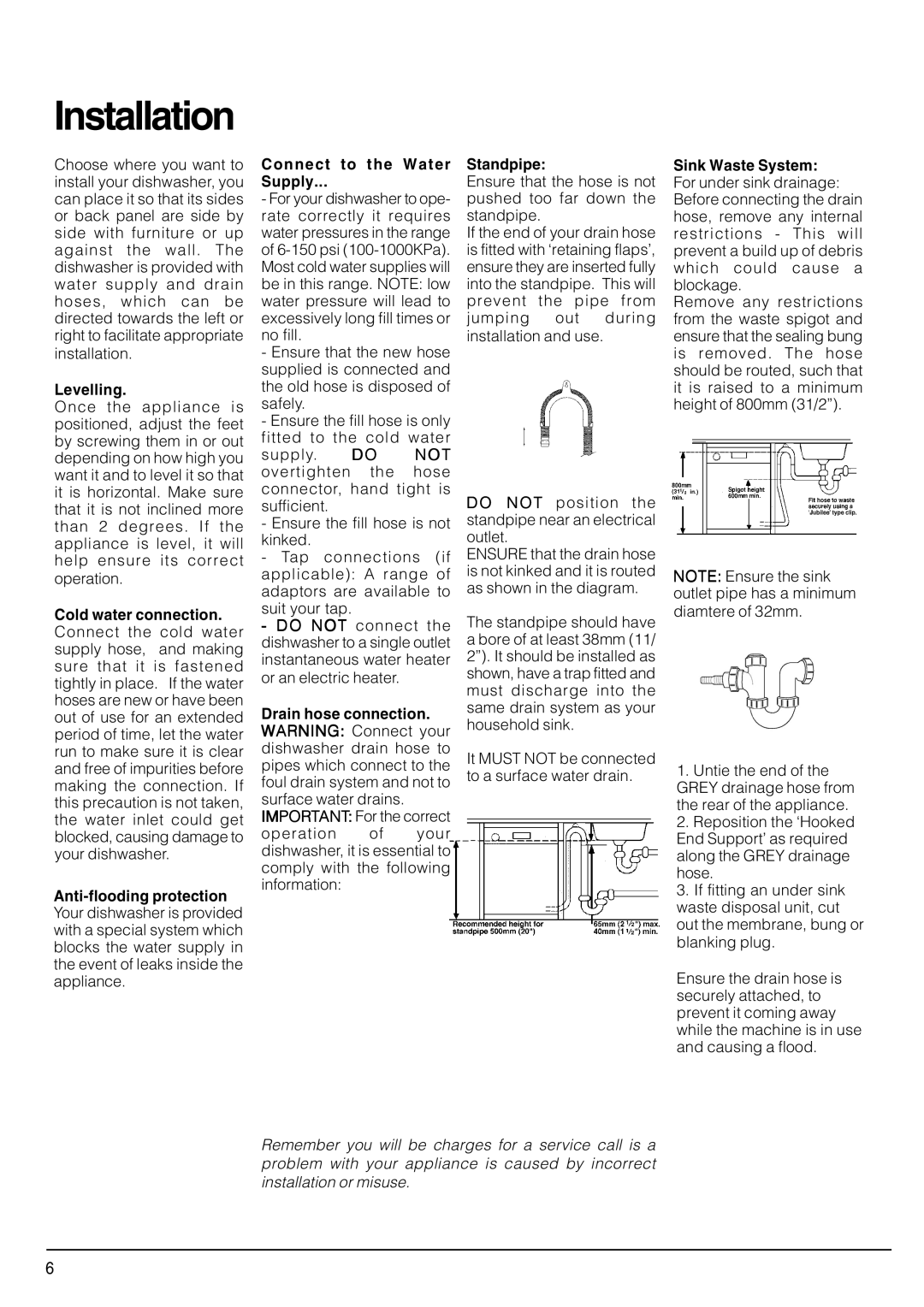SDW85, SDW80 specifications
The Indesit SDW80 and SDW85 dishwashers represent a blend of efficiency, practicality, and modern design perfect for those seeking reliable kitchen appliances. Both models share many core features while catering to slightly different user demands.One of the standout characteristics of the Indesit SDW80 and SDW85 is their energy efficiency. With an impressive energy rating, these dishwashers help consumers save on energy costs while being environmentally friendly. This aligns with increasingly important global sustainability trends, making them ideal choices for eco-conscious households.
Both models feature a large capacity that accommodates up to 13 place settings, making them perfect for families or those who enjoy entertaining. The spacious interior design ensures that you can efficiently wash larger pots, pans, and a variety of dinnerware in a single cycle.
The Indesit SDW80 and SDW85 come equipped with multiple wash programs that cater to the diverse needs of users, from quick washes for lightly soiled dishes to intensive cycles for heavily soiled cookware. The Quick Wash option is particularly beneficial for those in a hurry, cleaning dishes in as little as 30 minutes, which is excellent for busy lifestyles.
In terms of technology, both models incorporate the "AquaStop" feature, ensuring that water is only released when necessary, thus preventing water waste and potential leaks. Additionally, the adjustable upper rack provides flexibility to load taller items without compromising space, enhancing the overall usability.
Another significant aspect is the noise level; Indesit has designed these dishwashers with silent operation in mind, ensuring that they run quietly in the background, making them suitable for open-plan living spaces.
The stylish exterior of the Indesit SDW80 and SDW85, available in a sleek white or stainless steel finish, can seamlessly integrate into various kitchen designs. The user-friendly control panel enhances overall usability, allowing users to select programs and adjust settings with ease.
Overall, the Indesit SDW80 and SDW85 dishwashers combine innovative features with practicality, making them excellent options for anyone looking to streamline their dishwashing experience while maintaining high standards of cleanliness and efficiency. With their advanced technologies and user-centric designs, they promise to enhance your kitchen experience significantly.

